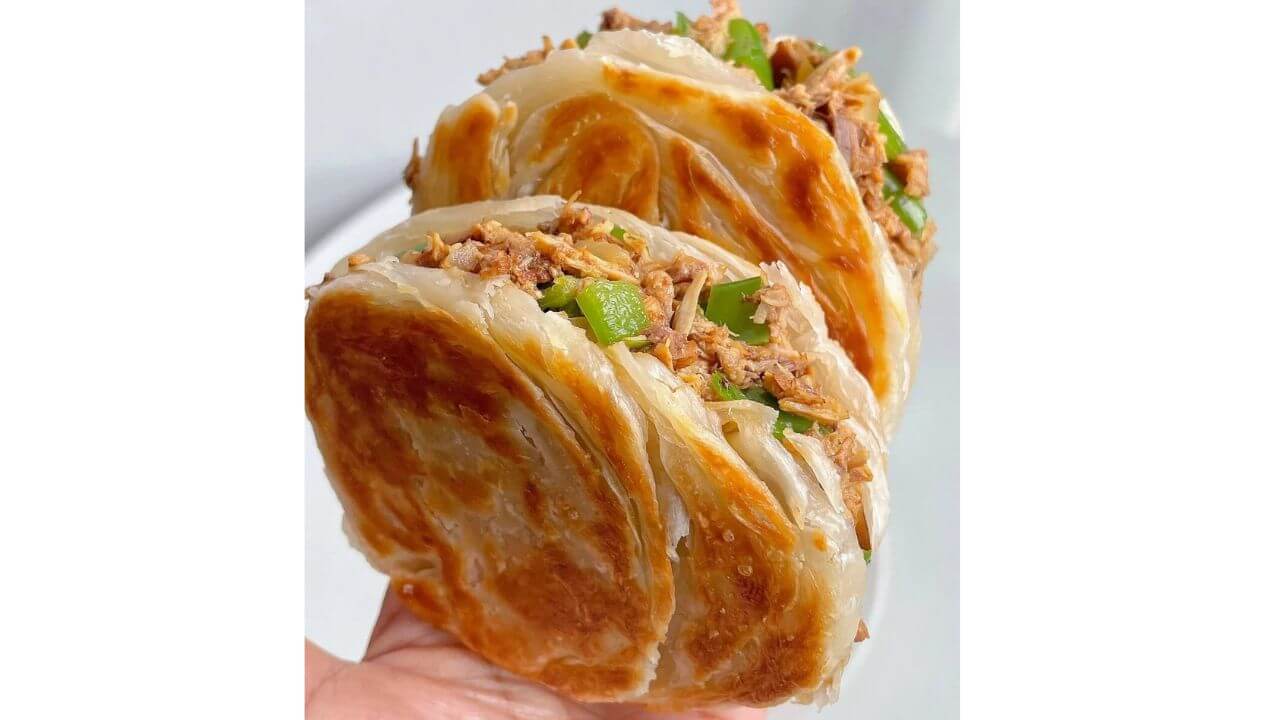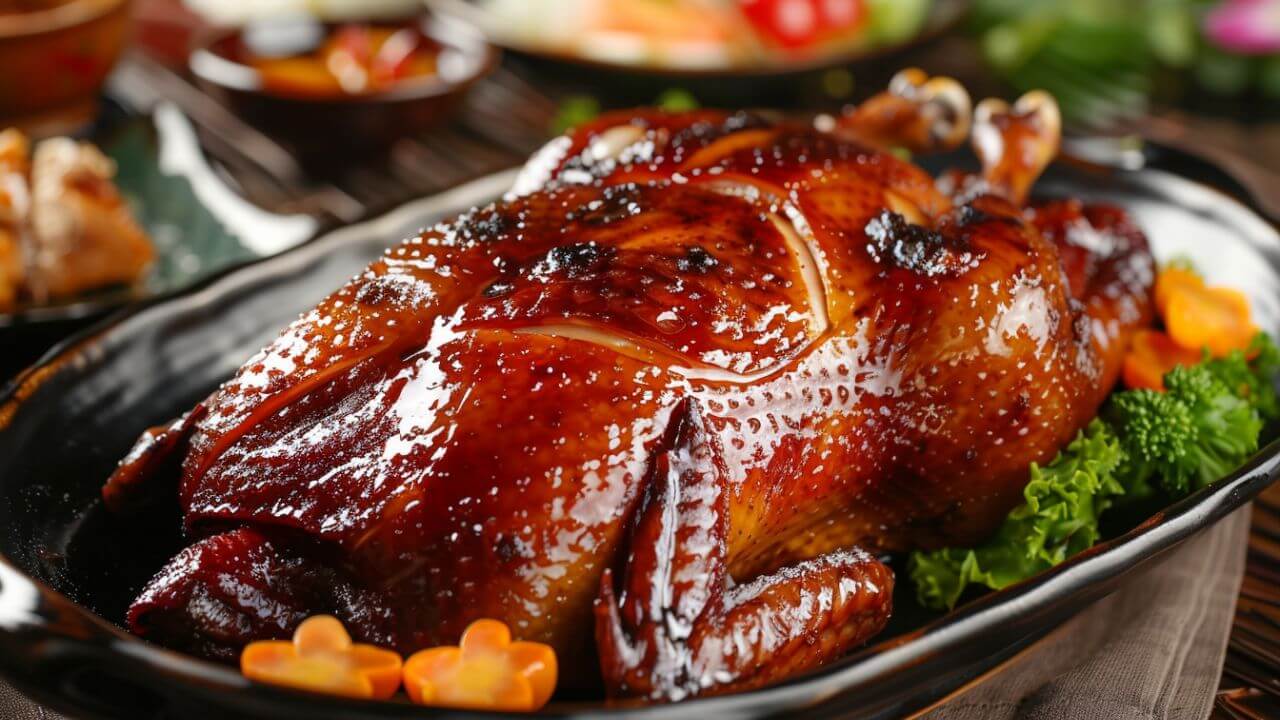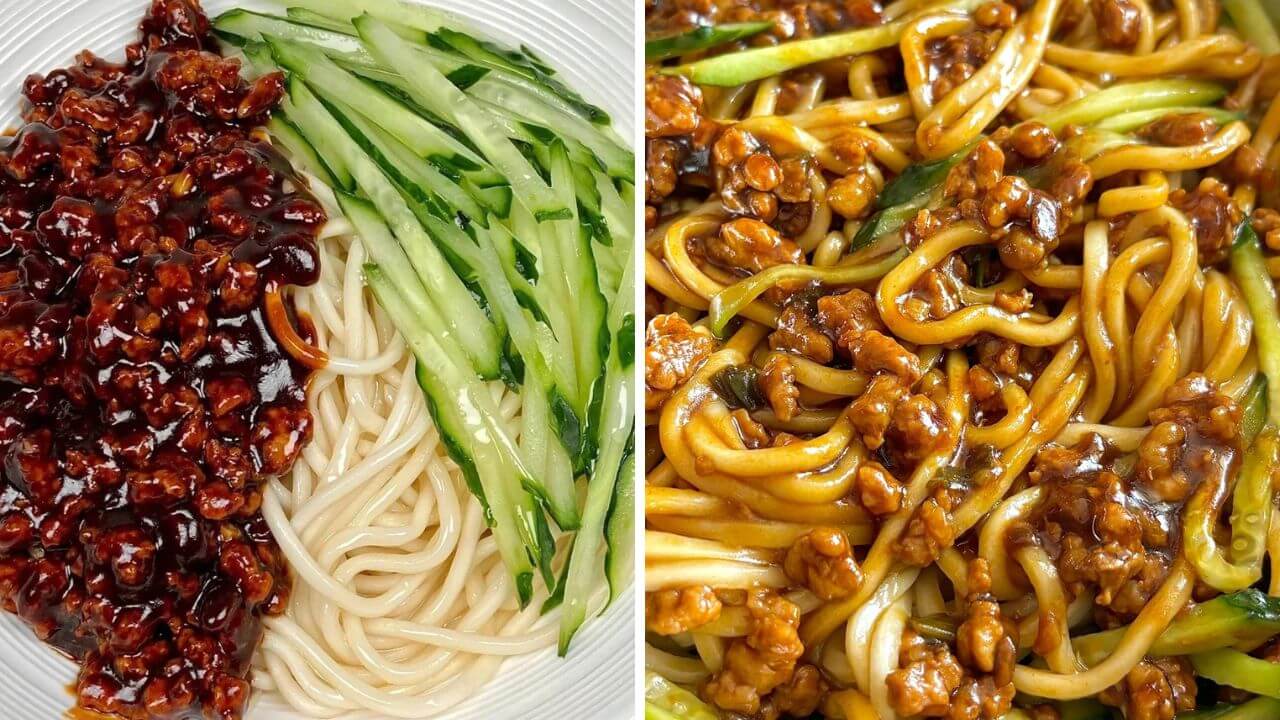Beijing cuisine is a reflection of its rich history and cultural diversity, offering a mix of traditional dishes and modern culinary innovations. From street food to fine dining, the city provides a vast array of flavors and dining experiences. These are the best dishes in Beijing that you must try:

Top Dishes to Try
Peking Duck
Peking duck is a legendary and a must-try dish in Beijing cuisine. it is renowned for its crispy, golden skin and tender, flavorful meat. Traditionally roasted in a wood-fired oven, it’s served with thin pancakes, scallions, cucumber, and hoisin sauce, allowing diners to create their own savory wraps. The meticulous preparation and presentation of Peking duck make it a symbol of Chinese culinary artistry, offering a dining experience that’s both delicious and steeped in tradition.
- Where to Try: The Horizon– location, Da Dong- location.
Jiaozi (Dumplings)
Jiaozi, or Chinese dumplings, are a beloved staple in Beijing cuisine, celebrated for their delicate wrappers encasing flavorful fillings of minced meat, vegetables, or seafood. Often enjoyed during festivals and family gatherings, jiaozi can be boiled, steamed, or pan-fried, each method offering a unique texture and taste. The art of making and sharing jiaozi symbolizes unity and warmth, making them a comforting and culturally rich dish in Chinese cuisine.
- Where to Try: Mr. Shi’s Dumplings, Baoyuan Dumplings.

Zhajiangmian
Zhajiangmian is a hearty Beijing noodle dish, featuring thick, chewy noodles topped with a savory soybean paste sauce and a medley of fresh vegetables. The rich, umami flavor of the sauce, often made with minced pork or beef, contrasts beautifully with the crisp texture of cucumbers and radishes, creating a satisfying and balanced meal. Zhajiangmian is a beloved comfort food, offering a taste of Beijing cuisine and home-style cooking that is both nourishing and deeply rooted in tradition.
- Where to Try: Old Beijing Zhajiangmian King.
Roujiamo
Roujiamo is often referred to as the Chinese hamburger, is a flavorful street food classic from northern China, particularly popular in Beijing. It features tender, slow-cooked meat, usually pork or lamb, seasoned with aromatic spices and herbs, all tucked into a crisp, yet soft, flatbread. This savory snack is a delicious blend of textures and rich flavors, making it a beloved and satisfying treat that captures the essence of Chinese street food culture.
- Where to Try: Various street vendors and local markets.

Where to Eat in Beijing
Fine Dining
- Quanjude: Famous for its traditional Peking duck.
- Da Dong: Known for its innovative approach to Peking duck and modern Chinese cuisine.
Casual Dining
- Huguosi Snacks: Offers a variety of traditional Beijing snacks and dishes.
- Haidilao Hot Pot: Popular for its high-quality hot pot and excellent service.
Street Food and Local Markets
- Wangfujing Snack Street: A bustling area with a wide range of street food options, from skewers to exotic snacks.
- Donghuamen Night Market: Offers a variety of local delicacies and street food.
Where Do Locals Eat
- Ghost Street (Guijie): A lively street lined with restaurants, famous for its spicy crayfish and late-night dining options.
- Nanluoguxiang: A historic hutong area with trendy cafes, bars, and eateries serving both traditional and contemporary dishes.
When you exploring Beijing cuisine, it’s also worth exploring traditional hutong areas where small, family-run eateries offer authentic local flavors in a more intimate setting. When ordering, try some lesser-known dishes like zhajiangmian, or don your adventurous spirit and sample Beijing’s unique street delicacies such as fried scorpions at Wangfujing Snack Street. Tea is an integral part of the dining experience, so take time to enjoy a pot of jasmine or oolong tea, which pairs beautifully with many dishes. When dining with locals, it’s polite to let elders or the host order first, and be sure to compliment the chef or host on the meal—this is a valued gesture of respect. Finally, Beijing’s cuisine is deeply rooted in seasonal ingredients, so inquire about seasonal specialties that might not be on the regular menu but are worth trying for a truly local experience.

Helen Wang
Travel Advisor & Guide Expert
I started my travel career in 2005 and have since become an expert in Tibet and China’s travel destinations and helping travelers plan unforgettable trips.
For expert travel advice to China or Tibet, feel free to contact me.